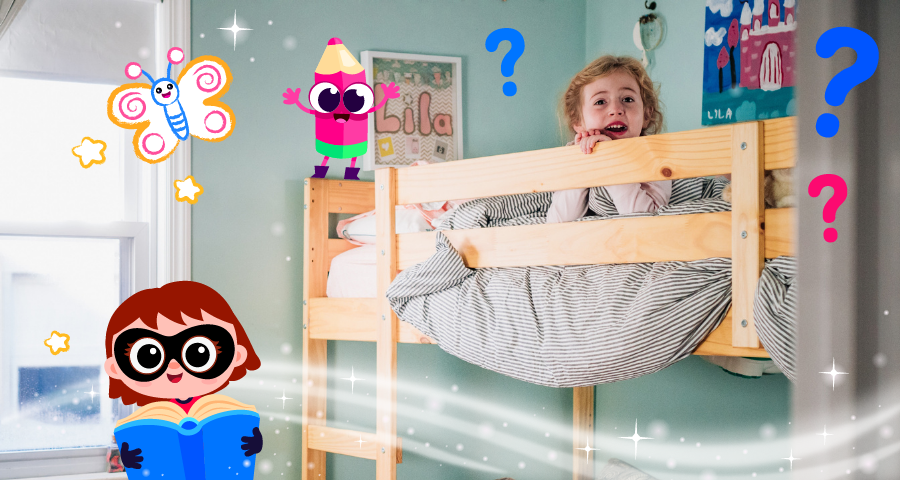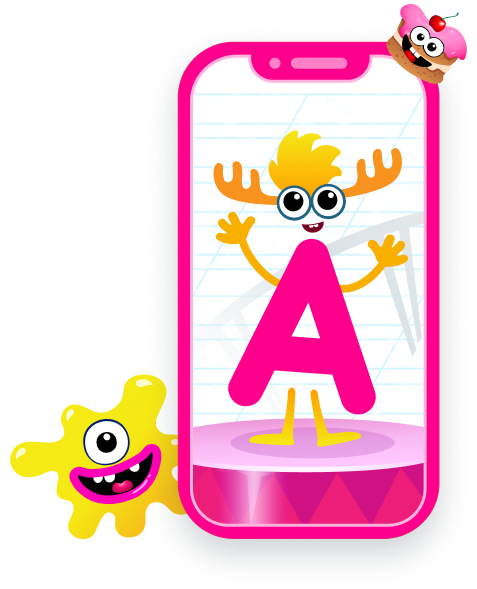Is your child asking why all the time? Between the ages of 2 and 4, toddlers often enter into the “why” stage of development. It’s the time when children become aware that there’s so much in the world that they don’t understand. They ask why about every little thought that crosses their mind. Some of these questions are tricky to answer, some are awkward, but the toughest part is keeping your cool when there are one too many whys in a row.

My child asks why all the time – Why?
Children are naturally curious creatures. They need to be to learn about the world around them. A walk in the park is a wondrous adventure: Why do leaves change color? Why do they fall? Why do they crunch beneath your feet? Why didn’t the other leaves change and fall? And that’s just about leaves! The answers seem obvious to us (well, for these questions) as adults with years of experience living and learning. But for children everything is new, and you get to be there to discover it with them.
But when children are so young, the questions aren’t posed quite so elegantly. Their vocabulary is limited, so they use what they’ve got, and that’s the word why. Hearing the same word over and over will test any parent’s patience, but try to remember that they’re learning and it won’t be long before their vocabulary expands and your discussions will be less one sided.
There are some more emotionally challenging why questions like, “why do I have to brush my teeth?” And “Why do I have to put on pants?” These are usually posed at the end of the day when everyone’s tired or you’re trying to get ready by a certain time and stress is running high. These why questions are asked in defiance. But are really just an expression of grumpiness. Maybe the child was interrupted and is upset about not being able to continue. This is how they express their anger. Getting frustrated yourself and snapping back will only escalate the situation. So, as with curiosity-based questions, it’s best to keep calm and answer reasonably.
Asking questions is also one way children can continue a conversation with you. They want to bond with you. If they ask you questions and get a satisfactory answer, they feel heard and loved. They also feel that it is safe for them to continue going to you when they need help. If parents repeatedly don’t answer their kids’ questions or make them feel silly for asking, it sends the message that their curiosity, and they themselves, are worthless. While this stage of excessive questioning can get annoying, it’s a once-in-a-lifetime opportunity to shape your child’s developing brain.

What to do when your child asks why all the time
There are a number of ways to tackle the whys. There’s no single correct answer, so see what works best for you and your child in different situations.
Answer them This might seem like a no-brainer, but it’s worth mentioning. When kids are satisfied with an answer, they stop asking or ask follow-up questions. It’s tempting to play the adult card and say, “Because I said so,” but it can leave a child feeling shut down, confused, and belittled.
Ask them Turn the question around and ask, “What do you think?” Doing this forces them to think and develop logic and critical reasoning skills. This has the added benefit of finding out the true crux of the matter, as kids also ask questions to try and figure out issues they’re struggling with in their heads.
Admit when you don’t know It’s perfectly reasonable to not know. It’s impossible to know everything, and new information is being discovered every day. Admitting that you don’t know something shows that not knowing is ok and is an opportunity to learn.
Look it up together This is useful in a number of ways. You can show your kids that they can research on their own, you get time to bond with your child and show that you care, and you create more engagement with learning. Pull out an encyclopedia to find the answer and learn something new!
Get outside help If the questions are getting to be too much, try to enlist the help of a grandparent, aunt, uncle, or friend. This expands the circle of people a child can trust and strengthens you as a family and a community.

Children ask the most questions from 3 to 5
Kids between these ages ask a staggering number of questions. It can be overwhelming. But it’s the most crucial time in their lives for brain development and the time in their lives when they learn the most in the shortest amount of time. Kids begin asking fewer and fewer questions after the age of five, so it’s important to make sure that you nurture their natural curiosity to foster a healthy interest in learning.
The why stage of development can be a trying one, but it’s just an expression of a child’s burgeoning curiosity. With a little creativity and a lot of patience, you can get through it and enhance your child’s interest in learning!









